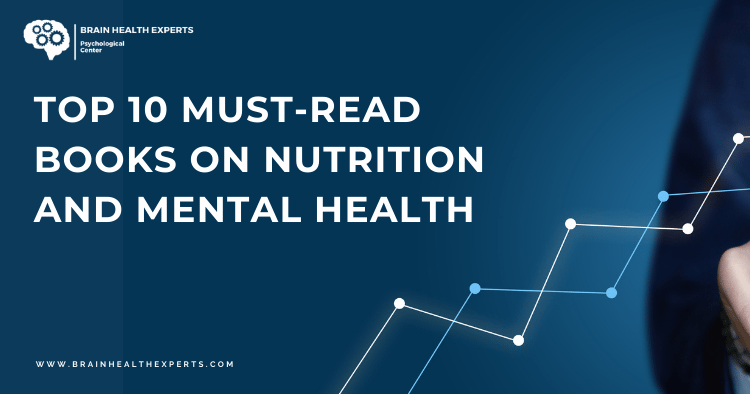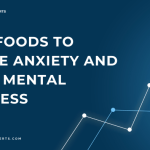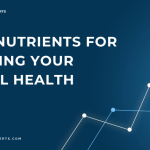Table of Contents
- Introduction
- 1. The Nutrition and Mental Health Connection
- 2. The Mind-Gut Connection
- 3. Brain Food: The Surprising Science of Eating for Cognitive Power
- 4. Food and Mood: The Complete Guide to Eating Well for Mental Health
- 5. Eat to Beat Depression and Anxiety
- 6. The Happy Kitchen: Good Mood Food
- 7. The Mood Cure
- 8. The Whole Brain Diet
- 9. How Not to Die
- 10. UnDiet: The Lost Art of Feeding Your Soul
- Conclusion
- FAQs
Introduction
In recent years, the link between nutrition and mental health has gained significant attention. As people become more aware of how their diet affects their mood, stress levels, and overall mental well-being, a wealth of literature has emerged to guide them on this journey. If you’re looking to explore this fascinating connection further, here are ten must-read books that delve into the relationship between what we eat and how we feel.
1. The Nutrition and Mental Health Connection
This book serves as an essential primer for understanding how various nutrients impact brain function. It explains the physiological processes behind mood regulation and cognitive function, highlighting key vitamins and minerals that can enhance mental health. The author, a renowned nutritionist, provides practical advice on how to incorporate these nutrients into everyday meals, making it accessible for everyone.
“Nutrition is not just about food; it’s about the science of how what we eat influences our mental well-being.”
2. The Mind-Gut Connection
The connection between our gut and brain is more profound than we often realize. This book explores the emerging field of psychobiotics, showcasing how gut health can influence mental health. It offers insights into how probiotics and a balanced diet can alleviate anxiety and depression. With easy-to-follow recipes, readers will find ways to nourish their gut and, consequently, their mind.
*For more on gut health, visit Harvard Health.
3. Brain Food: The Surprising Science of Eating for Cognitive Power
This book is a treasure trove of research-backed information on how specific foods can enhance brain function. It discusses the role of omega-3 fatty acids, antioxidants, and other nutrients that support cognitive health. The author, a neuroscientist, shares practical tips and meal plans designed to optimize brain power, making it a great read for students and professionals alike.
“What we eat has a direct impact on our brain health; it’s time to make our plates smarter.”
4. Food and Mood: The Complete Guide to Eating Well for Mental Health
This comprehensive guide addresses the intricate relationship between food and mood. It combines science with practical advice, offering readers a roadmap to improve their mental well-being through nutrition. The author provides a range of recipes and meal plans tailored for specific mental health issues, making it an invaluable resource for anyone looking to enhance their mental wellness through diet.
“Eating well isn’t just a diet; it’s a commitment to your emotional health.”
5. Eat to Beat Depression and Anxiety
In this enlightening book, the authors, both nutritionists and mental health practitioners, provide a step-by-step approach to using food as a tool against depression and anxiety. They discuss how to create a balanced diet rich in nutrients that promote mental health. The book features success stories and practical meal plans, empowering readers to take control of their mental health through dietary changes.
6. The Happy Kitchen: Good Mood Food
This book combines delicious recipes with the science of nutrition and mood. The authors emphasize the importance of cooking with whole foods, offering over 75 recipes designed to uplift your spirits. They also include tips on meal prep and planning, making it easy for readers to enjoy the benefits of good mood food every day.
“Cooking is an act of love, and what you serve your body matters.”
7. The Mood Cure
Written by a clinical nutritionist, this book focuses on how the right foods can alleviate emotional distress. It covers nutrient deficiencies that can lead to mood disorders and provides practical solutions to restore balance. The author also shares self-help techniques and recipes, making it a holistic guide to improving mental health through nutrition.
8. The Whole Brain Diet
This book presents a unique perspective on nutrition by focusing on how different foods can support various brain functions. The author explains the importance of a balanced diet for cognitive health and provides guidelines for meals that enhance memory, focus, and overall brain function. With an array of recipes, this book is perfect for those looking to optimize their mental performance.
“A well-fed brain is a well-functioning brain; nourish it wisely.”
9. How Not to Die
While primarily a health book, it features significant sections on mental health and nutrition. The author, Dr. Michael Greger, discusses how a plant-based diet can help prevent and even reverse many health issues, including mental health disorders. This book provides a comprehensive look at how dietary choices can influence our overall well-being, including our mental state.
For more information, check out NutritionFacts.org.
10. UnDiet: The Lost Art of Feeding Your Soul
This book takes a more philosophical approach to nutrition and mental health, emphasizing the emotional and psychological aspects of eating. The author encourages readers to reconnect with their bodies and food, moving away from diet culture towards a more intuitive approach to nutrition. It’s a refreshing take for those struggling with traditional dieting methods.
“Food is not merely fuel; it’s a gateway to nurturing your soul and spirit.”
Conclusion
The connection between nutrition and mental health is undeniable. These ten books provide valuable insights and practical strategies for anyone looking to improve their mental well-being through diet. Whether you’re seeking to alleviate anxiety, boost your mood, or enhance cognitive function, these reads will guide you on your journey toward a healthier mind and body.
Also Look For
If you’re interested in how positive thinking can further enhance your mental health, check out these articles:
- 10 Ways Positive Thinking Transforms Your Daily Life
- 10 Powerful Affirmations to Boost Mental Health Today
- 10 Ways Positive Thinking Boosts Emotional Well-Being
FAQs
1. How can nutrition affect mental health?
Nutrition plays a crucial role in brain function and mood regulation. Nutrient deficiencies can lead to mood disorders, while a well-balanced diet rich in essential nutrients can enhance mental clarity and emotional stability.
2. What types of food are best for mental health?
Foods rich in omega-3 fatty acids, antioxidants, vitamins, and minerals, such as leafy greens, fatty fish, nuts, seeds, and whole grains, are excellent for supporting mental health.
3. Can changing my diet really improve my mood?
Yes, many studies show that dietary changes can significantly impact mood and mental health. A balanced diet helps regulate hormones and neurotransmitters responsible for mood regulation.
4. Are there any specific diets recommended for mental health?
Mediterranean and DASH diets are often recommended for their beneficial effects on brain health. These diets emphasize whole foods, healthy fats, and a variety of fruits and vegetables.
5. Where can I find more resources on nutrition and mental health?
Websites like Harvard Health, NutritionFacts.org, and The American Psychological Association provide valuable information on this topic.
By diving into these resources, you’re not just reading about nutrition; you’re embarking on a journey toward a healthier, happier you. Happy reading!





